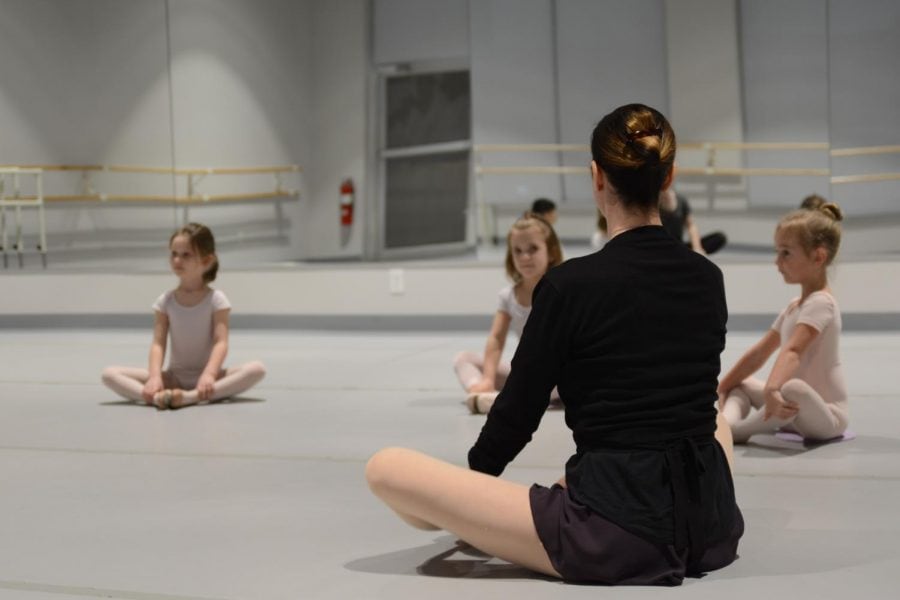Students nationwide pursue degrees from afar
February 21, 2019
Tens of thousands of students convene in Tuscaloosa to pursue an education at The University of Alabama. However, many members of this community are not aware of the number of students earning their degrees through Bama By Distance.
Bama By Distance is an online distance learning program that provides individuals of any age and any position in life with the opportunity to earn their degrees from the University.
In the 2017-2018 academic year, this program saw an enrollment of 2,781 undergraduate students and 2,387 graduate students from all 50 states, with enrolled students ranging from 18 to 74 years old.
Bama By Distance utilizes an advanced analytics system that collects data to locate geographic regions of highest interest in the program. This determines where advertising can be most effectively placed to reach students who might be interested in enrolling in it.
Robert Hayes, associate dean and director of Academic Outreach, worked in a number of different areas at the University including housing, student affairs and the College of Arts and Sciences before becoming involved with the College of Continuing Studies.
“The landscape of education, especially online educational opportunities, is constantly changing,” Hayes said. “[Bama By Distance] opens up the services of the University to a whole new community of learners.”
Bama By Distance provides a feasible opportunity to earn a degree for students who might otherwise be hindered by location, affordability or other similar obstacles. The program allows individuals to create schedules based on their availability while also providing lower tuition rates by eliminating costs such as parking passes, meal plans, housing and other expenses associated with being on campus.
Amy Cole Ahmed graduated with a degree in leadership studies in December 2015 through Bama By Distance. She lived in Tuscaloosa while earning her degree, but she opted for the program due to the flexibility it offers.
As a part of her senior project, Ahmed created a business proposal for a dance studio. Five months after her graduation, she began preparations to turn that project into a reality. In September of 2016, she opened Druid City School of Ballet in Tuscaloosa.
“This school would not be open if I had not done this program and not done this small business proposal,” Ahmed said. “Not at all. I originally studied at Butler University undergrad for two years right out of high school. I was a dance major there. I left to go back to New York and train. I really felt that I needed to try to audition and get a job sooner rather than later.”
Ahmed landed a job with the Alabama Ballet in Birmingham where she stayed for 10 years before moving to Tuscaloosa with her husband.
“I wasn’t dancing anymore,” Ahmed said. “I wasn’t sure what I wanted to do, so I decided to finish my degree. I don’t even know how I found the program. I didn’t go in trying to find a distance learning program, but I happened upon it while I was researching programs at UA.”
Because of Ahmed’s location in Tuscaloosa, she was able to take a combination of classes online and in person. She found the program to be fulfilling without the on-campus component.
“You’re not on your own,” Ahmed said. “There is accountability and a lot of support. There’s really good communication. I think that’s true for all students. That has nothing to do with the fact that I took some classes on campus.”
While this program allows students to communicate with their professors and advisors online, it also provides opportunities for students to interact with one another.
“I took this class about the romantic comedy,” Ahmed said. “We all came into town on a Friday and we got together half a day Friday and all day Saturday. You have this one weekend, and then you go away and do your work by yourself and hand it in digitally.”
Ahmed said these occasional meetings took place on weekends, but never on the same weekend as a home football game. Because of the lack of a physical presence on campus and the limited interactions these students have with others enrolled at the University, this program often goes unnoticed.
Sara Norton, a freshman majoring in aerospace engineering, had heard of Bama By Distance but knew little of its extent.
“When you register for classes, there will be some classes that say they’re only for Bama By Distance,” Norton said. “But other than knowing that it was an online program, I didn’t know much about it. It makes sense, though, because there are so many people that need the option to live a life outside of school and be able to do things on their own time.”
Hayes said Bama By Distance is growing in size every academic year, expanding its course offerings and giving more students access to the education that the University offers.
“It’s such a good opportunity for people who have taken a different path in life that isn’t the traditional four years of college, straight out of high school route for whatever reason,” Ahmed said. “They had to go to work, or they had a really good job offer that didn’t need a college degree, but now they’re climbing up the ranks and need one, or family. Even though we have different backgrounds, there’s a commonality between all the students.”





















